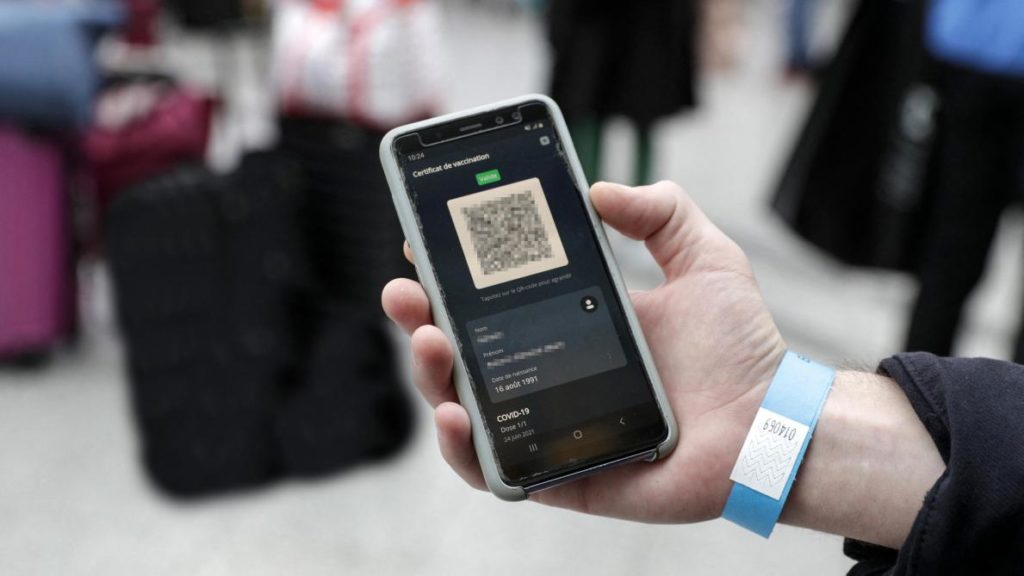If they do not get a booster vaccination in time, some 177,000 Brussels residents risk losing their Covid Safe Ticket (CST) from 1 March, when the validity of many people's basic vaccinations expires.
In mid-January, Belgium decided that the validity of adults’ primary vaccination certificates – without a booster dose – in the CST will be reduced from 270 days (nine months) to 150 days (five months) from March.
"This means that the CST of about 177,000 adults in Brussels will expire if they do not get their booster dose before then," said Inge Neven of the Brussels Health Inspectorate during a weekly press briefing on Tuesday.
It concerns adults who were vaccinated before 1 October with one dose of the Johnson & Johnson vaccine or two doses of Pfizer, Moderna or AstraZeneca and have not been back for a booster shot and do not have a valid recovery certificate.
Related News
- Covid Safe Ticket of 220,000 Brussels residents could expire in March
- CST can't become 'hidden obligation' to get vaccinated, says Superior Health Council
- Youngsters trying to get infected with Covid-19 in order to travel
Neven stressed that all eligible adults who have not had one yet are welcome for a booster – "with or without an appointment" – in all Brussels vaccination points. "First of all for their health, but also to make sure they can continue to use their CST."
It is "very important and very necessary" to get a booster dose, because the protection offered by the basic vaccination decreases after six months, but immunity rises again sharply after a third shot.
"Even if people have recently been through an Omicron infection, scientists still say it is best to get a booster (from two weeks after the symptoms ended) for optimal protection," said Neven.
No boosters for Brussels teenagers (yet)
Contrary to 12 to 17-year-olds in Flanders, those living in Brussels will not be offered a booster dose yet. "Brussels is still waiting until there is official advice from the European Medicines Agency (EMA) before offering boosters to teenagers," she said.
Last weekend, Flemish Health Minister Wouter Beke announced that he would not wait for a country-wide agreement on the matter and Flanders would start offering the boosters to under-18s on its own from the end of this week.
A uniform Belgian decision is still delayed due to the lack of EMA advice, which Beke has criticised repeatedly over the past few weeks. An opinion is not expected until the end of February, and will likely be limited to 16 and 17-year-olds.
Flanders will work with an ‘informed consent’ procedure for teenagers who want a booster in the meantime, meaning a document with all information about the vaccine has to be read and signed by them and their parents before the shot is administered.

